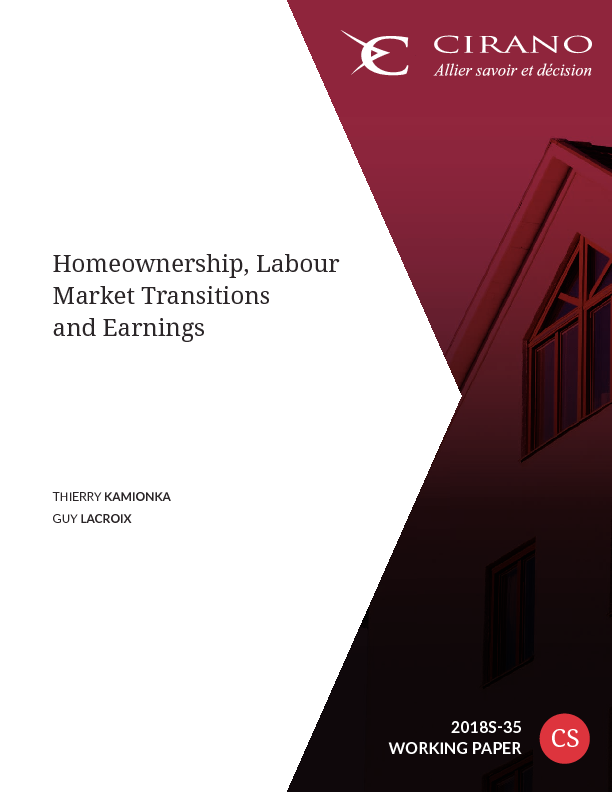Homeownership, Labour Market Transitions and Earnings
The paper investigates the links between homeownership, employment and earnings for which no consensus exists in the literature. Our analysis is cast within a dynamic setting and the endogeneity of each outcome is assessed through the estimation of a flexible panel multivariate model with random effects. The data we use are drawn from the French sample of the EU Survey on Income and Living Conditions for the years 2004–2013. The error terms are both correlated across equations and autocorrelated. Individual random effects are also correlated across equations. The model is estimated using a simulated maximum likelihood estimator and particular care is given to the initial conditions problem. Our results show that while homeowners have longer employment and unemployment spells, they must contend with lower earnings than tenants upon reemployment. They also stress the importance of unobserved heterogeneity in explaining the transitions on the labour and housing markets, and the relationship between earnings and the latter two. Failure to properly account for this is likely to yield biased parameter estimates.




